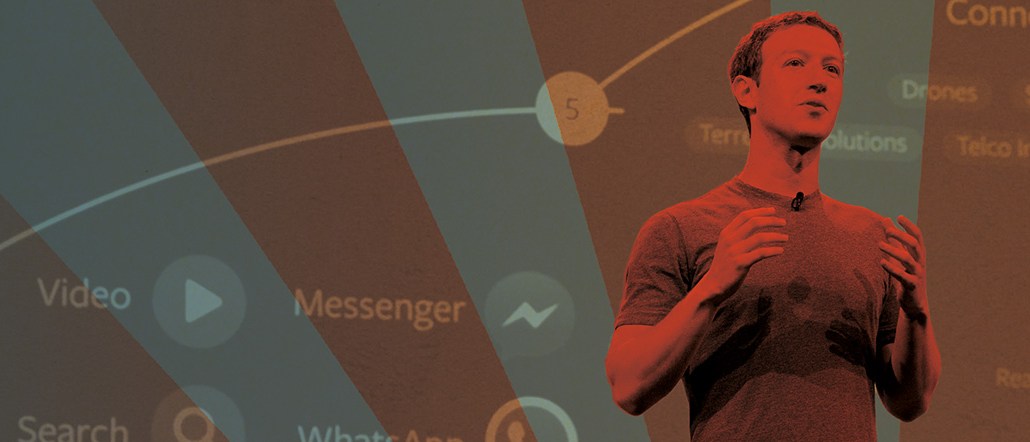Secure your place at the Digiday Publishing Summit in Vail, March 23-25

It’s early April, and viral site LittleThings is about to live-broadcast a performance by Lily Green, a 16-year-old singer from New York. Joe Speiser, the CEO of LittleThings, notes with satisfaction that nearly 6,000 people are already tuning in; by the end of the day, the 16-minute video will have gotten 36,000 views. “The audience is craving this kind of content,” he says.
But LittleThings can’t get the full benefit of them, or the rest of the videos it distributes on Facebook, which account for fully two-thirds of the 300 million video views it does per month. The video will appear on Facebook Live, one of the platform’s biggest initiatives of the moment. But like a lot of the initiatives that come pouring out of Facebook, there’s no way of knowing what Facebook’s commitment to it will be and if it will be good for publishers in the long term. Still, they feel compelled to get on board.
Such are the realities of being a modern publisher in the age of platforms. And the king of them all, Facebook, is increasingly inserting itself into the publishing business. In April at F8, its annual developer conference, it launched a bot platform for its messenger app where publishers and other companies can interact with users; opened its fast-loading mobile Instant Articles to all publishers; and threw money at some publishers to broadcast live video on its platform.
To keep users lingering longer and coming back more often, Facebook needs publishers’ content. And they in turn are eager to figure out how they can take advantage of this growing dependency — even reconfiguring their organizations to do so. LittleThings, a site offering feel-good articles and videos that built itself entirely on Facebook, is now pushing hard into video, for which it’s hired 10 people, with plans to add another five (out of 85 employees in all). “We’re not National Geographic, but there’s a big delta between that and the exploding watermelon,” Speiser says, referring to BuzzFeed’s instantly famous Facebook Live experiment.
Other examples abound: There’s Mashable, which recently laid off 30 people as part of a pivot to do more video. Bleacher Report is building a 35-person social army to create original material to live on Facebook, Instagram and elsewhere. Other publishers including CNN and Vox Media have hired dedicated teams to manage their platform distribution. Wait for the bot teams — they’re coming, too. But chasing platform dreams not only comes with no guarantee they’ll be able to generate revenue there, it means forgoing investment in original editorial or other opportunities.
It may seem like a honeymoon period for publishers, as Facebook and other platforms seem to be more attentive to their requests lately. Snapchat has made it easier for publishers to get exposure to their brands there. Facebook has created more avenues for publishers to sell advertising on Instant Articles. Apple has put promotional muscle behind its news aggregation app, Apple News.
But for all that, publishers still are making a lot of content for platforms with uncertain payoff. Facebook still doesn’t have a business model by which publishers can monetize their video there.
Sure, by publishing their stories as Instant Articles, publishers get to give readers a clean, fast-loading experience, which theoretically improves the chances they’ll come back. But in addition to the fact that Facebook controls the ad terms, publishers get scant information about their readers on the platform, such as how much time they’re spending with articles and what sites they visited previously.
But they probably have little choice. All this is happening against a backdrop of uncertainty about how publishers — traditional and new ones — will fund their editorial operations at a time of declining digital ad rates. Publishers are rightfully trying to offset their dependence on advertising with e-commerce, subscription revenue and events, but few publishers have been able to make those meaningful sources of revenue. No wonder publishers see no choice but to submit themselves to the platforms.
“More and more people are coming to your brand on the places that are most native to them,” says Jonathan Hunt, who heads up Vox Media’s global marketing. “For us, to not be there means we’re not seen, and the risk is you fall out of relevancy.”
Ultimately, publishers are a disparate collection of businesses that individually have little leverage over platform giants. There are real worries that publishers can invest to make themselves essential, but that can change at any time if Facebook decides to change up the kind of posts it rewards.
It’s that reality that scares Neil Vogel, CEO of About.com, who says he’s “absolutely petrified. And you should be. There are all these platforms that are between you and your audience.”
About.com is in a vulnerable position; two-thirds of its traffic come from search. In his three years as the CEO of About.com, Vogel has seen the site lose traffic to Google and Facebook, and he can only speculate why. “Engagement goes up, down, and we don’t know why, other than, they’ve changed the algorithm. The risk is, we figure it out, invest in it, and things change.”
But like other publishers, Vogel has no choice but to try his best to keep up with what platforms want and be prepared for the day — if and when — that change comes.
More in Media

Why more brands are rethinking influencer marketing with gamified micro-creator programs
Brands like Urban Outfitters and American Eagle are embracing a new, micro-creator-focused approach to influencer marketing. Why now?

WTF is pay per ‘demonstrated’ value in AI content licensing?
Publishers and tech companies are developing a “pay by demonstrated value” model in AI content licensing that ties compensation to usage.

The case for and against publisher content marketplaces
The debate isn’t whether publishers want marketplaces. It’s whether the economics support them.





